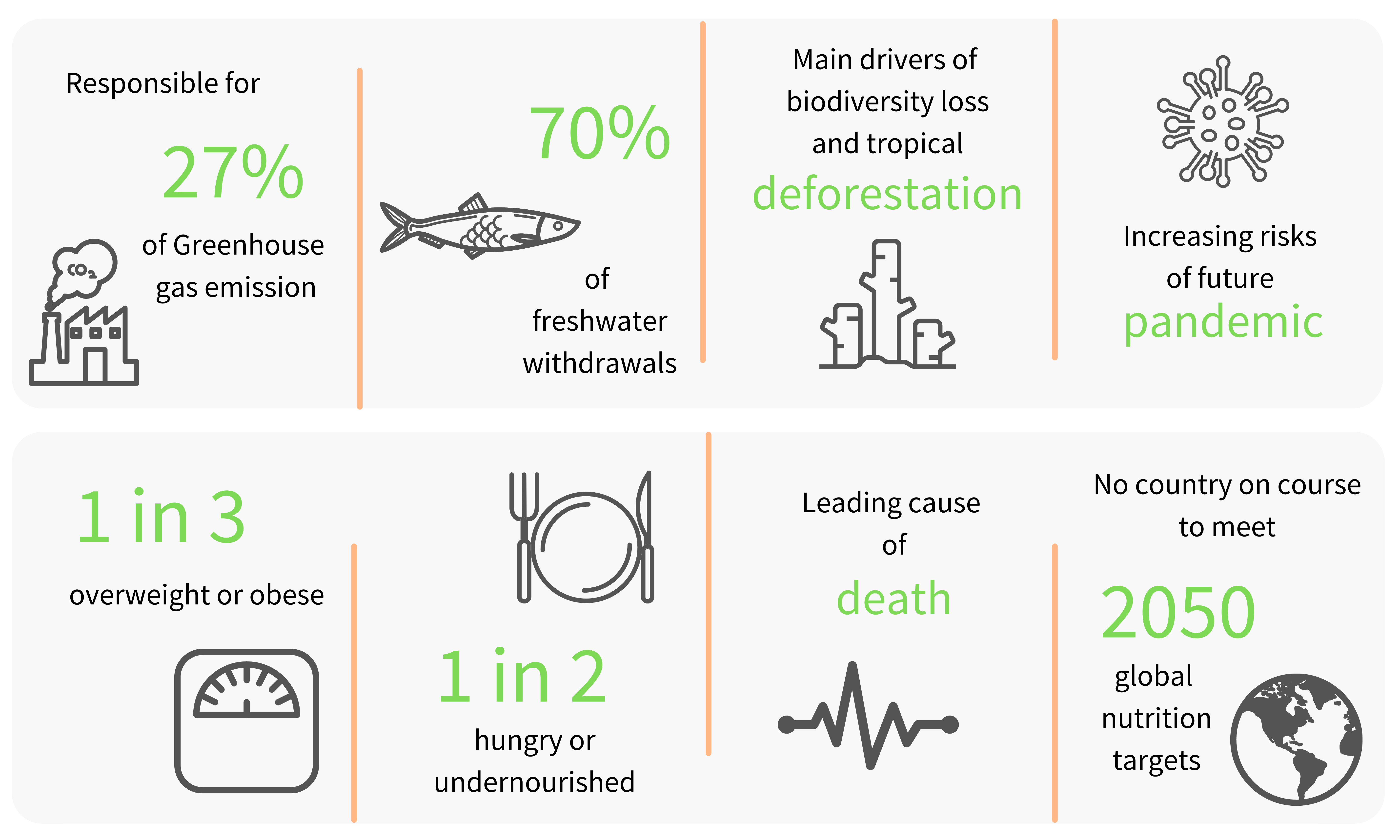
Farm to Fork strategy: what about plant-based proteins?
While the world was facing an unprecedented pandemic, in May 2020 the European Commission published the Farm to Fork strategy, included in the European Green Deal, in support of the pursuit of climate neutrality in Europe before 2050. The Farm to Fork strategy was created as a response to the European food consumption trend, which is becoming more and more unsustainable, both in terms of health and environment.
According to the report “Bending the curve: the restorative power of planet-based diets” published in the website Planet-Based Diets, the global food system is responsible for the following effects on the planet:

[Source: Bending the curve: the restorative power of plant-based diets, Planet-Based Diets, WWF,2020]
For this reason, the strategy focuses on six main goals:
- Ensure sustainable food production;
- Ensure food safety;
- Support a sustainable food supply chain from start to finish: from processing to sales (both wholesale and retail), including additional services, such as hospitality and catering;
- Promote sustainable food and support the transition to healthy eating habits;
- Reduce food waste;
- Fight food fraud throughout the supply chain.
The Farm to Fork strategy aims to be the driving force for the necessary transition from the current European food model to a more sustainable system that has a neutral or positive environmental impact and helps to reduce the effects of climate change while remaining accessible to everybody without impacting on the biodiversity.
 What about plant-based protein?
There is no obvious reference to plant-based proteins in the strategy, but its importance within the strategy itself is clear. In fact, achieving a more sustainable food model is strictly linked to the benefits that plant-based proteins and food can provide, both in terms of health and sustainability in the process and in the product.
For balancing our food system, it will be increasingly necessary to reduce the consumption of animal products and proteins, in favor of a higher consumption of vegetable proteins.
The cultivation of legumes is a perfect example, as seen in the article More beans on the table, more beauty on fields they meet the principle of a sustainable food chain thanks to their properties, such as the lower use of nitrogen fertilizers and pesticides, as well as their greater resilience to climate change and the better protection of the soil itself.
In this regard, consumer demand is increasing for plant-based proteins and food, as consumers are more and more looking for food that is healthy for people, animals and sustainable for our planet.
New market opportunities
This comes as a future opportunity for both companies and consumers. First of all, consumers can look forward to a future with a greater choice of products that are healthy, sustainable, and traceable with clear and transparent labels. In that sense, currently there is no mandatory nutritional labeling in all Europe, causing sometimes misleading or incomplete labels, therefore preventing consumers from being fully aware of product properties. For this reason, one of the key points in the Farm to Fork strategy is the introduction of a nutritional labeling system that is uniform across Europe, positioning Nutri-score labeling as one of the favorite candidates.
Companies are experiencing an increased demand for alternative proteins, and this is leading to find solutions in meat analog, creating a positive impact on the health of people and the planet itself. In this respect, our Protilla Finder is a very useful tool that can help companies find the right ingredient for the specific use.
What’s in-store for the future?
The EU Farm to Fork strategy is part of an evolving scenario, seeking a food system that is safer, more balanced and controlled that complies with the sustainability guidelines promoted by the EU itself.
The European Green Deal itself is an opportunity to align our food system with the needs of the planet and respond positively to the Europeans longing for a healthy, fair and eco-friendly diet.
